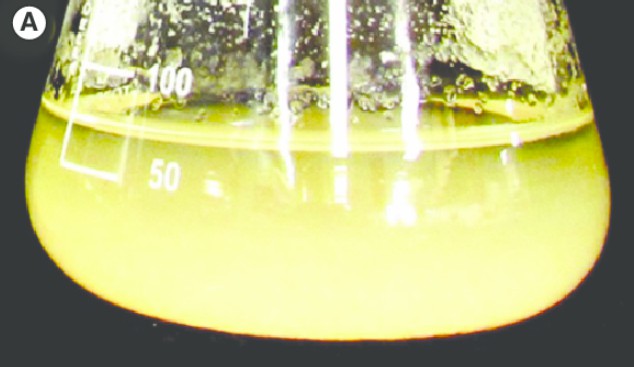Cells in plant suspension culture have the characteristics of rapid growth, uniform metabolism, and the growth environment is easy to control. Because the cultured cells are sensitive to various external reactions, plant suspension cultured cells have become ideal materials for metabolism, physiology, biochemistry, and molecular biology research, and can also be used for mutant screening, production of secondary metabolites, and other fields.
Tobacco (Nicotiana tubacum Linn.) is an economic crop of Solanaceae, and it is also an important model plant in the study of plant molecular physiology and biochemistry. Salvia milliorrhiza Bunge is a medicinal plant of Labiatae, and the establishment of a suspension system is of great significance for the construction of a system for the separation and purification of its medicinal substances.
Principle
Plant cell suspension culture (plant cell suspension culture) is to cultivate free single cells and small cell clusters in a liquid medium that is constantly shaking. Cells and cell clusters for suspension culture can be obtained from cultured callus or physically or chemically obtained from plant tissues or organs. Suspension culture cells used in this experiment came from loose callus.
Plant cell suspension culture system requirements:
- The cell culture is well dispersed and the cell clusters are small
- Uniform cell shape and cell cluster size
- Cells grow rapidly
The liquid shaking culture adopted has the following important functions:
- Oscillation can exert a gentle rheological force on the cell clusters in the culture medium, breaking them into small cell clusters and single cells
- Oscillation is conducive to the uniform distribution of cells in the medium and the exchange of substances between the medium and cells
- The flow of the culture medium is conducive to the gas exchange between the medium and the air in the container through the gas-liquid interface, ensuring the oxygen required for cell respiration, enabling the cells to grow rapidly, and also conducive to the removal of carbon dioxide
 Figure 1. Suspension cultured tobacco BY-2 cells grown in a shake flask for a week (Xu, J.; et al. 2014)
Figure 1. Suspension cultured tobacco BY-2 cells grown in a shake flask for a week (Xu, J.; et al. 2014)
Procedures
- Induction and Domestication of Callus from Tobacco and Salvia miltiorrhiza
The callus is induced from explants such as roots, stems and leaves of plants, and then the callus is separated from the explants and subcultured repeatedly. The domestication culture is carried out to obtain fast-growing, fresh, young, small, loose and friable, moist-looking, uniform, white or pale yellow callus. The callus is generally cultured in the dark at 25 oC, and subcultured once every 30 days. The material used in this experiment is the callus of tobacco or Salvia miltiorrhiza.
- Inoculation of Callus
The inoculum material for suspension culture should be callus in vigorous growth phase, and the components of liquid medium are generally the same as those for inducing callus, but no agar is added. Add 20mL of liquid medium to a 100mL Erlenmeyer flask (the volume of the culture medium is generally 1/3 of the volume of the Erlenmeyer flask), and inoculate each flask with about 2g of loose and fragile callus. Use an inoculated spatula (or tweezers) to break up the callus mass in liquid medium. Then seal the Erlenmeyer flask and place it on a shaker for shaking culture. The culture conditions are 25 oC, 120 r/min, and dark.
- Subculture
It can be subcultured once every 7d or 14d. When subculturing, let the culture bottle stand still for a period of time, and large cell clusters will sink to the bottom of the bottle. Pipette the cell suspension in the middle into a new culture flask, and add 2-4 times the volume of fresh medium.
Reference
- Xu, J.; Zhang, N. On the way to commercializing plant cell culture platform for biopharmaceuticals: Present status and prospect. Pharmaceutical bioprocessing. 2014, 2: 499-518.
Hot Services & Products
Our products/services are For Research Use Only. Not For Clinical Use!
 MEET US AT PLANT BIOLOGY 2024 June 22-26, 2024 Honolulu, Hl #309Learn More
MEET US AT PLANT BIOLOGY 2024 June 22-26, 2024 Honolulu, Hl #309Learn More
 Figure 1. Suspension cultured tobacco BY-2 cells grown in a shake flask for a week (Xu, J.; et al. 2014)
Figure 1. Suspension cultured tobacco BY-2 cells grown in a shake flask for a week (Xu, J.; et al. 2014)